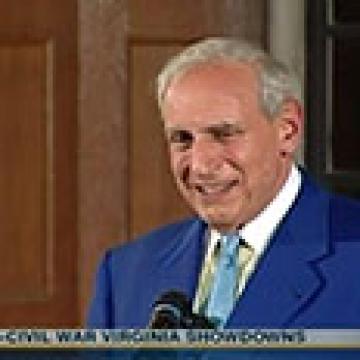William Harrison: Impact and Legacy
William Henry Harrison was the first Whig to enter office, and the first President to die in office. Harrison's significance in presidential history does not lie in his brief term in office, but rather in the innovative campaign techniques designed by his party to secure him the office. Savvy advisers eyed the electorate and wholly altered their candidate's résumé and image to fit what the public wanted. Harrison's handlers made a common man out of Virginia aristocracy. Countless succeeding campaigns have taken this lesson and ridden it to victory. For example, it is doubtful that Abraham Lincoln ever actually split fence rails. Furthermore, Theodore Roosevelt, despite his cowboy image, enjoyed genteel Eastern wealth. Finally, the pork-rind-loving George Bush, as a boy, rode in chauffeured automobiles to elite private schools.
Harrison did not create a Whig dynasty. After his death, his running mate, former Democrat John Tyler, would alienate the Whigs and ally himself with his former party. Only Zachary Taylor would be elected by the Whigs, and Millard Fillmore would succeed him in office. Thereafter the party would be absorbed into the Republican Party in 1854.
William Henry Harrison, of course, is a much more prominent player in the history of America than in the history of its presidency. He is remembered as the most dominant figure in the evolution of the Northwest territories into the Upper Midwest today. As both soldier and statesman, Harrison spent virtually his entire adult life championing this region.
Whenever a President dies in office, there is considerable debate as to what he would and would not have done, given a full term. Because his time in office was so short and he believed that Congress should be the dominant policymaker, it is impossible to assess the probable course of a Harrison presidency. The death of Harrison prevented the congressional Whigs from consolidating power. Within a decade and a half, the party was in pieces, splintered into the existing Democrats and a new party, the Republicans.
